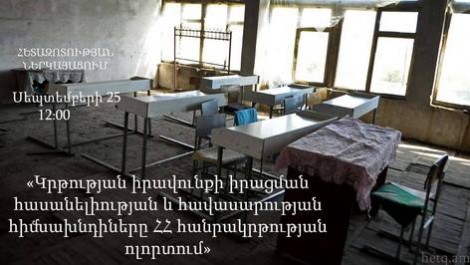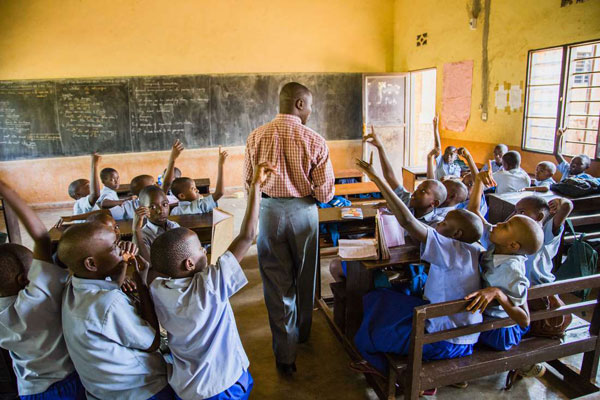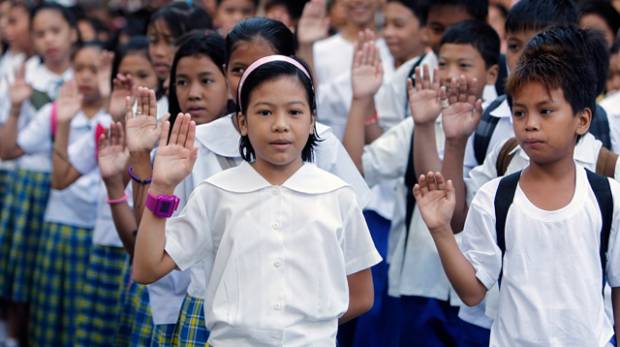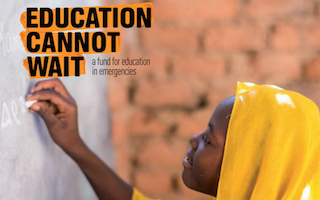Ghana, August 15, 2017/By ANANPANSAH,B ABRAHAM/Source: https://www.modernghana.com
The razzmatazz that heralded the 2012 and 2016 general election can still be recollected fresh.Free education. Free education. Free education.Now it’s here…Indeed,if government says yes,who can say no(apart from God).Thank you your Excellency Nana Addo.Thank you sedulously tax payer.
The handwriting is bold enough.Free Senior High School (SHS) is here to stay despite your right to say.This is a fact all «priviledged person’s» must accept or feel free to to burn the sea!»Chai, I feel you well well Mr . Education Minister like Don Jazzy feel Omotolla.Hard talk be what?
The baseline remains September 2017.(Ghc400 million cool and we’ve started).This is albeit the gritting concerns on the table yet to be addressed.
Infact,I should say that government’s decision to expand access by redefining basic education to include secondary education is commendable.It’s a constitutional must-have.Financially distressed parents can now sleep with all two eyes closed.The ‘School Fees BP’ of poor parents will reduce.I celebrate government for this effort.
Yes,the policy is laudable.But no matter how letter-perfect the policy on Fee Free Education may appear to be,in the absence of clear information and a government white paper on the implementation of the policy,the genuine concerns of critics should well be understood.It’s therefore,very important we hasten slowly in our attempt to render every dissenting view nugatory.Dissenters may not necessarily be ‘priviledged persons’ or ‘antagonist’, but citizens who care for the system.
Hiding in my little ‘somewhere’ as a village blogger fully raised in the ‘village situation’,I smile miserably at every mention of free education.I have always had genuine issues to raise about the policy.I see a good policy on one hand, and on the other hand,I prevision challenges for that ‘village student’.(My previous articles on the subject matter speaks volumes).As I’ve always maintained,the policy in itself is good.But a good thing may be done wrongly defeating its intended purpose.
We’ve also heard it all.The voice of the Minister of Education is loud enough…»You don’t need to be brilliant to enjoy free SHS…;Sit the BECE,pass, get placed in a public SHS,and you benefit from Free SHS».Two sides of the same argument,I guess!And this position seem to provoke my curiosity.
The emphasis is the usual «grade producing educational system».Pass.Pass.Pass.Well!
The ‘Cut off pass mantra’ is the clear reason why most people are classifying the policy as a scholarship package.Thus, you must meet a pass condition(Cut off grade) before you can enjoy the policy package.If you don’t meet the condition,count yourself out.
Expanding the argument by taking a closer look at the wisdom contained in article 25 (1) of the 1992 constitution,the very basis of this policy,which says «All persons shall have the right to equal educational opportunities and facilities….», I ask myself:Do we all have equal educational opportunities and facilities in this country?Article 17 (4 )(a) makes it beautiful by empowering parliament to enact laws that are reasonably necessary to provide «for the implementation of policies and programmes aimed at redressing social,economic or educational imbalances in the Ghanaian society.»
In an attempt to create such equal opportunities and redress the imbalances in our educational system as a country,particularly between the North and South,the Northern Scholarship was instituted in 1957 by Ghana’s first president Dr.Kwame Nkrumah as a gap bridging mechanism.Feeding grants and examination registration fees are covered under the scholarship.The policy, distributive as it’s, aims at addressing equity challenges and ensuring social justice.
But it appears we have now grown pass the stone age of «so-called Northern Scholarship to negotiating Free SHS policy that is going to be universally proportional in nature regardless of the existing systemic imbalances.The playing field will be levelled irrespective of environmental,socioeconomic and existing conditions.The policy is going to treat unequals as equals.The benchmark is simple,»pass your BECE and enjoy».
In effect,students who use stones as computer mouse are expected to score the same grade in ICT as those who enjoy ultramodern ICT facilities in the cities.Children from underserved communities and deprived backgrounds must compete in the imbalanced system with their affluent counterparts and obtain the same grades if not better…No more preferential treatment.Whether in «King’s or Queen’s JHS or Kotito Number 10 JHS»,you must pass the same exams with or without the needed TLM’s, facilities or learning support.That is now the system.
And it’s or should be said that,in such a system,I envision a deliberate attempt to further widen the already widened inequality gap in education between Northern and Southern Ghana.The existing gap in education between the two halves of our country may not be plucked any sooner.
Educational standard in the three Regions of the North and some deprived communities in Ghana is generally accepted to be low.Not because children from these parts of the country are born ‘stupid’,but the clear established gap in resources and facilities «cause am».
Taking the 2014 BECE results as an example,only 60% of students who sat for the examination qualified to enter SHS.In the three Regions of the North particularly,22% qualified from Northern Region,11% from Upper West and Upper East Regions.In the same year under review,80% of students qualified from Greater Accra and Ashanti Region to enter SHS.So you see the clear disparity?
Students from the north who hitherto didn’t patronise the ‘big public SHS’s» in the south for fear of the fees would now want to ‘dare there’.The requirements and the challenge of competing with students exposed to improved learning environments for limited space in such schools may,however, limit their chances.We are gradually going to have a system where students from advanced Junior High Schools get not only the best of the policy but the most out of it.The poor and disadvantaged students can’t catch up with the system.The very people for whose reason the policy is being implemented.
A good policy among other things,must aim at increasing the equity and fairness of all members and sectors of society by balancing the existing conditions.
The policy if not prioritised will create undue added advantage for our brothers in the south,whilst creating added disadvantage for those down north.
It’s on this note that I wish to call on the Northern Caucaus of Members of Parliament to seek clear answers and demand for a fair implementation of the policy along the existing imbalanced conditions.A wise man once said there no greater inequality than the equal treatment of unequals.The gap between the north and south is already wide enough.Any any attempt to widen it the more can only spell doom for our common good .It’s not for nothing that nations usually rise against nations.
Let’s beware!
May God bless our homeland Ghana.
The writer of this article is a teacher by profession,a freelance journalist,youth/community advocate,blogger/writer and a student.
Read more of his works on ( ananpansah-ab.blogspot.com ).
By ANANPANSAH,B ABRAHAM(AB)
(The Village Writer)
0241129910/0200704844
Source:
https://www.modernghana.com/news/795199/free-shs-a-challenge-to-bridging-gap-in-education-between-no.html












 Users Today : 94
Users Today : 94 Total Users : 35459560
Total Users : 35459560 Views Today : 149
Views Today : 149 Total views : 3417907
Total views : 3417907